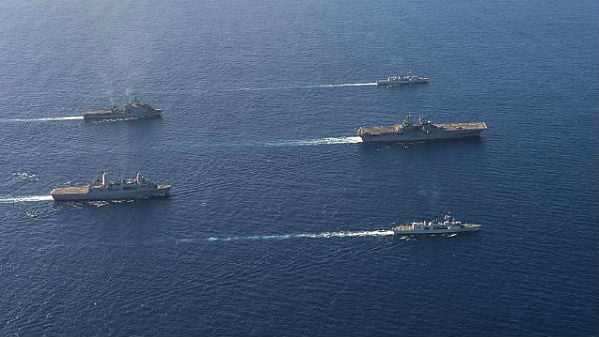U.S. Freedom of Navigation Moves Will Continue

The United States will conduct freedom of navigation operations in the South China Sea again, U.S. Defense Secretary Ash Carter said in a speech on Saturday, although he gave no timeline for any such actions.
Carter's comments, delivered at a defense forum at the Ronald Reagan Presidential Library in California, came at the close of a trip to Asia, where he cruised on a U.S. aircraft carrier operating in the South China Sea and blamed Beijing's island-building for rising tensions in the region.
In October, a U.S. guided-missile destroyer, the USS Lassen, challenged territorial limits around one of the man-made islands China claims in the Spratly archipelago with a so-called freedom-of-navigation patrol.
"We've done them before, all over the world," Carter said, in reference to the operation. "And we will do them again."
A rising and more ambitious China and a Russia intent on flouting the international order mean the U.S. military must adapt its strategies and operations, he said.
"How China behaves will be the true test of its commitment to peace and security," Carter said. "This is why nations across the region are watching China's actions in areas like the maritime domain and cyberspace."
China claims most of the South China Sea, through which more than $5 trillion in global trade passes every year. Vietnam, Malaysia, Brunei, the Philippines and Taiwan have rival claims.
"China has reclaimed more land than any other country in the entire history of the region," Carter said.
The United States is "deeply concerned" about the extent of land reclamation and the prospect of further militarization there, which could lead to a greater "risk of miscalculation or conflict," he said.
The United States is responding to China's moves by putting its "best and newest" assets in the Asia-Pacific and investing in space, cyber, missile defense, and electronic warfare, he added.
Another challenge for the United States is Russia's "provocations," including in Europe and the Middle East, Carter said, adding that Russia has violated the sovereignty of Ukraine and is trying to intimidate Baltic states.
He also criticized Russia for prolonging Syria's civil war, although he said it was possible Russia could play a constructive role in ending the conflict.
